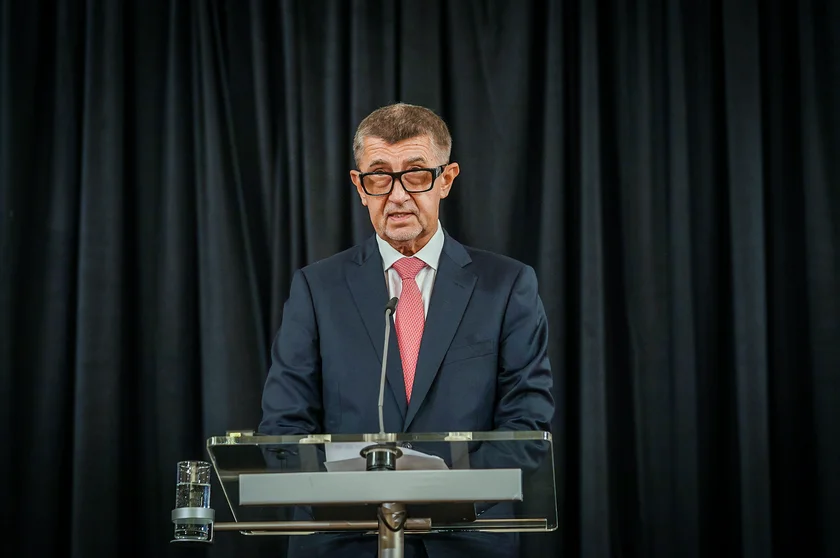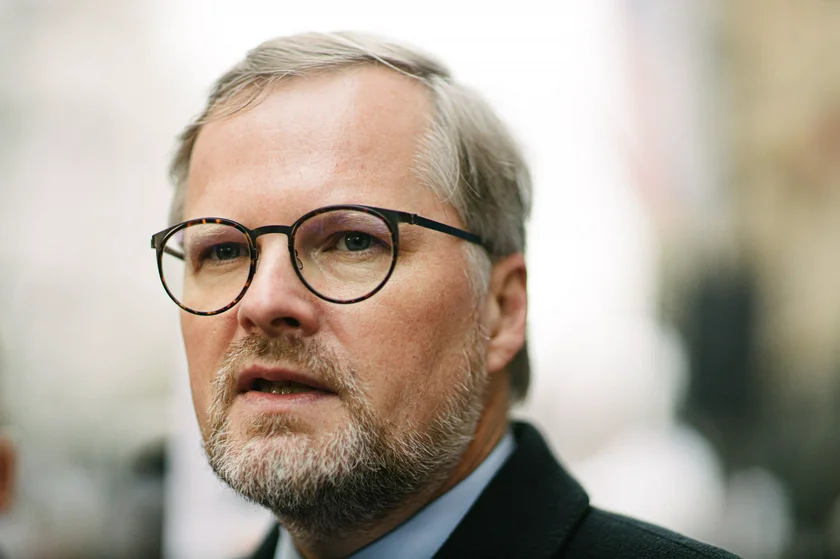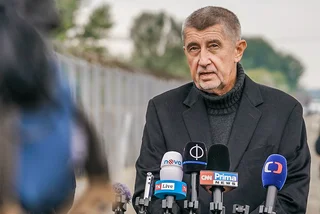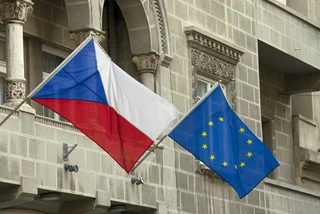The general election held on October 8-9 marked a seismic change in Czech politics, heralding the end of the reign of controversial leader Andrej Babiš and ushering in a new coalition government at a time of intense social and economic uncertainty resulting from the Covid pandemic.
Some had expected President Miloš Zeman to try to keep Babiš in power despite the result of the election; but the transfer of power has proven complicated for different reasons. Zeman’s lengthy hospitalization brought proceedings to a halt, and a late twist saw him object to a proposed ministerial appointment in the new regime.
Today, though, the formation of the new government is finally complete, and ministers are being appointed by Zeman at his Lány presidential manor. All eighteen of the ministers proposed by Fiala a month ago have been accepted by Zeman, despite objections to the nomination of Pirate Party politician Jan Lipavský as Foreign Minister. The new cabinet must still pass a vote of confidence in parliament after Christmas before fully taking control of the country, but its secure majority means all clear obstacles to the transfer of power have been overcome.
Babiš: until we meet again?
Andrej Babiš has been Prime Minister of the Czech Republic since December 2017, previously serving as Minister of Finance. Babiš formed his ANO party in 2011, campaigning on an anti-corruption platform: political origins which have taken on a strong sense of irony given the accusations of corruption and conflicts of interest levelled at Babiš throughout his time in charge of the country.

Public prosecutors are asking the Czech parliament to release Babiš for prosecution relating to the Stork’s Nest affair of alleged EU subsidy fraud. The EU has meanwhile repeatedly expressed concern about Babiš’s conflicts of interest due to his continued control of the huge Agrofert conglomerate, despite placing the business into trust funds on becoming Prime Minister.
Earlier this year, Babiš was also one of the highest profile politicians implicated in the Pandora Papers scandal. Babiš was found to have passed CZK 400 million through a complex system of offshore companies when buying luxury French real estate. Breaking shortly before the election, Babiš dismissed allegations of tax avoidance as false, saying he arranged the transactions in a way recommended to him by a real estate agency.
Babiš’s departure as Prime Minister will be celebrated by the many who saw his reign as bad for accountability and transparency in Czech politics. But many are predicting a presidential run for the ANO leader in 2023, when the second term of Miloš Zeman ends; so the controversial outgoing leader might not spend long out of a position of power in Czech politics.
Petr Fiala and the five-party coalition
The incoming government, sworn in by President Zeman at Lány today, comprises MPs from five parties: the Civic Democrats (ODS), TOP 09, the Christian Democrats (KDU-ČSL), the Czech Pirate Party and a group of Mayors and Independents (STAN).
The new Prime Minister, Petr Fiala, is a conservative who takes a skeptical stance towards closer EU integration and liberalization on social issues, but who sees restoring respectability to Czech politics as the main priority following the reign of Babiš. It’s been noted that the new regime will have to operate in a continuous mode of compromise due to the varying political ideologies of the parties involved.

PARTNER ARTICLE
Others predict that the new government will face challenges in working with President Zeman, who was a close ally of Babiš. Divisions are likely to emerge most clearly in matters of foreign policy; Zeman is known to favor the building of ties with eastern powers, while the new government has a largely pro-EU, pro-western bent. Zeman’s initial refusal to appoint Pirate politicians Jan Lipavský as Foreign Minister was the first sign of this tension, as the Pirates are among the most strong pro-western parties in the new government.
PrávÄ› teÄ prezident Zeman jmenuje naÅ¡i vládu. https://t.co/igUQW7dnG0
— ODS (@ODScz) December 17, 2021
Who’s who in the new government
- Prime Minister: Petr Fiala. Leader of the Civic Democrats, the largest party in the new coalition. Fiala comes from an academic background, leading political faculties and institutes and serving as the head of Brno’s Masaryk University before becoming leader of the Civic Democrats in 2014.
- Minister for Regional Development and Digitization: Ivan Bartoš. Leader of the Czech Pirate Party and one of the country’s most well-known politicians, thanks in part to his distinctive dreadlocks. The Pirates were for some time tipped to be the largest party following the elections, but they suffered a dramatic dip in support and will only serve as a junior partner of the new coalition.
- Foreign Minister: Jan Lipavský (Czech Pirate Party). Lipavský’s appointment has been controversial, with President Zeman initially refusing to accept him as Foreign Minister. Zeman cited Lipavský’s supposedly poor academic achievements, as well as his lukewarm relations with Israel and Visegrád Group allies Hungary, Poland and Slovakia as the reasons for his rejection. After crunch talks with Fiala on Monday, however, Zeman backed down and accepted the nomination of Lipavský.
- Health Minister: Vlastimil Válek (TOP 09). Válek is inheriting an extremely serious situation as Health Minister, with big calls to be made on lockdowns and mandatory vaccination. The incoming regime has expressed its opposition to compulsory jabs, unlike the outgoing ANO government. Válek’s first major decision, though, will concern whether or not to extend the national state of emergency past Christmas.
- European Affairs Minister: Mikuláš Bek (STAN). Bek will take charge of this newly created ministry, in charge of preparing the forthcoming Czech presidency of the EU. The incoming government’s decision to create a ministry of European affairs is also seen as a signal of intent to repair damage done to the Czech Republic’s relations with the EU during Andrej Babiš’s tenure as Prime Minister.












 Reading time: 4 minutes
Reading time: 4 minutes 




























